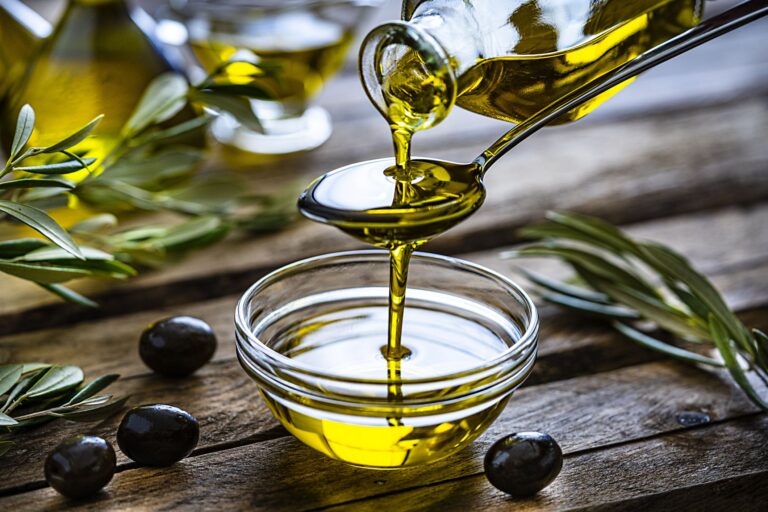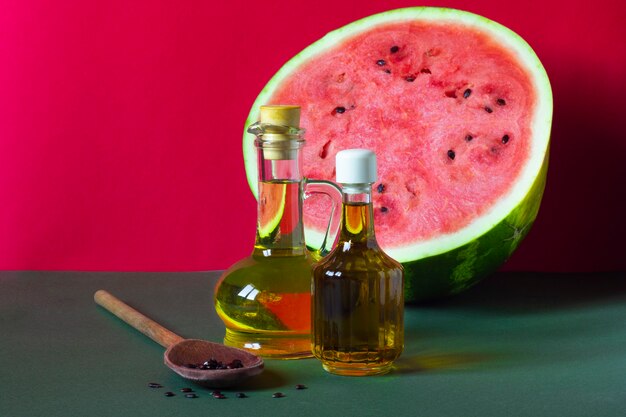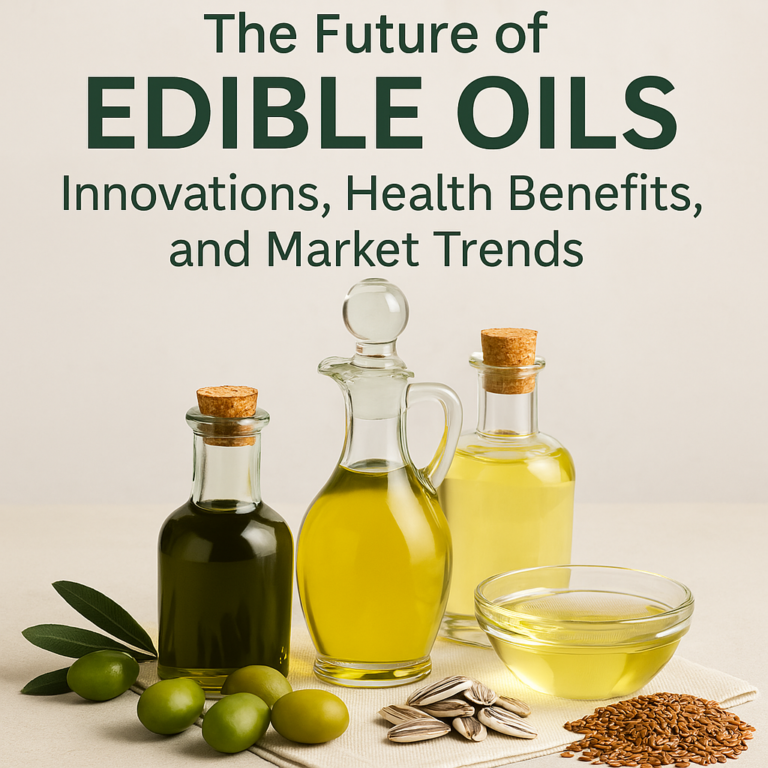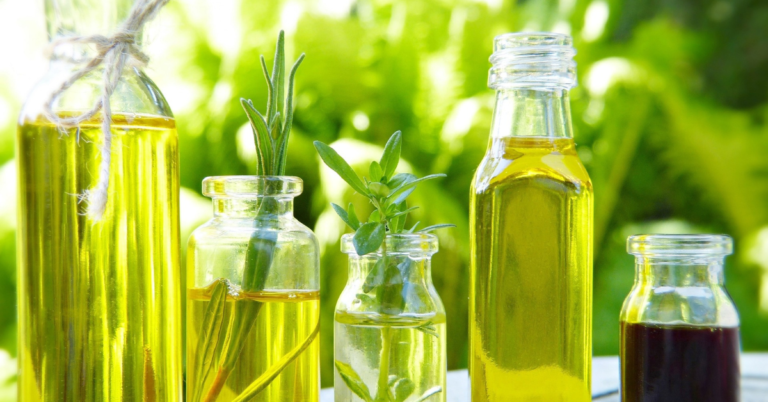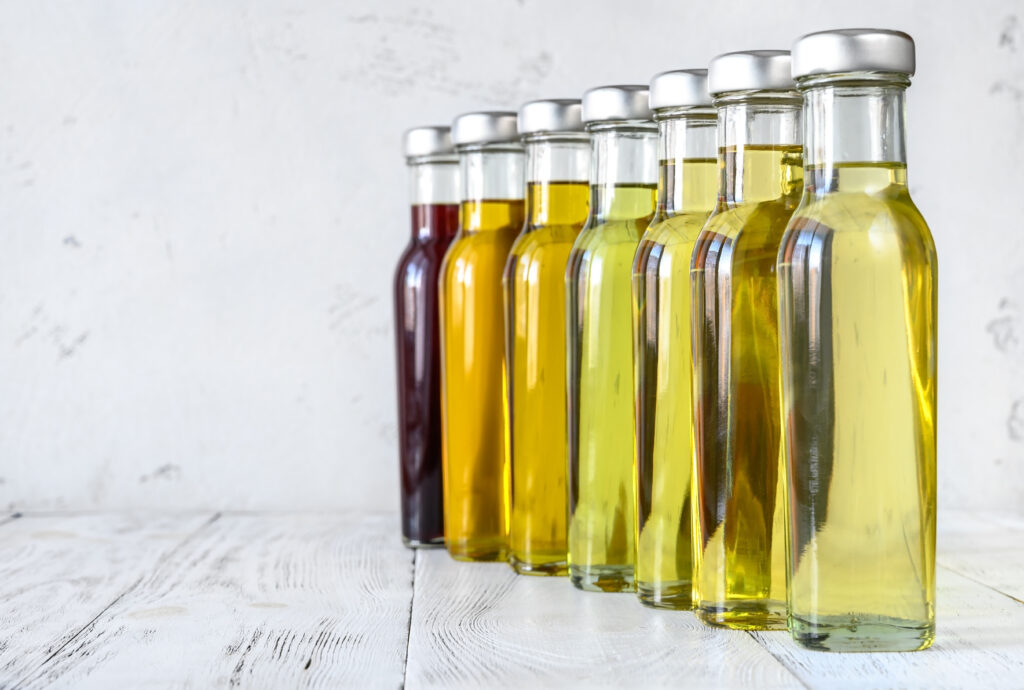
Assortment of vegetable oils in bottles
A Health-Conscious Cook’s Tale
Ananya was a home cook with a passion for healthy eating. She stood in the grocery store aisle staring at rows of cooking oils. Coconut oil, olive oil, canola oil, sunflower oil—each label made health claims that sounded convincing. Confused, she remembered her grandmother’s advice about using mustard oil for its therapeutic benefits. But was it still the healthiest choice? With too many choices and burgeoning oil prices, she felt the need to look further into the history of edible oils and how modern refining processes have changed the way we perceive what should be good for our bodies.
If you ever wondered, like Ananya, how oils differ in terms of health and environmental impact, well this guide is specifically for you.
About the History of Cooking Oils
For centuries, cooking oils have been an integral part of the human diet. Ancient societies extracted oils by simple mechanical pressing. The two most expensive and valuable oils, both for medicine and culinary use, were sesame and olive oils. Edible oil refining has varied over time and made oil extraction more efficient but introduced health problems because the nutrients were lost through refining.
Today, edible oils come from various sources: from seeds and fruits to animal fats. Modern technology has made available in the market various types of oils due to cold pressing and solvent extraction.
Understanding Different Types of Cooking Oils
Plant-Based Oils
Plant-based oils constitute the largest portion of the world’s supply.It gives customers better choices.
- Olive oil: Olive oil, which is low in polyunsaturated fats, is desirable for its cardiovascular benefits. It is especially popular in Mediterranean cuisine.
- Coconut Oil: Coconut oil is high in healthy fats, and is best used for hot cooking. It has antibacterial properties, making it a favorite for skin and hair care.
- Avocado oil: A nutrient rich source of vitamin E and heart-healthy fatty acids.
Production of seed oil
Seed oils include sunflower, canola, and soybean. They are inexpensive and versatile, but their high levels of omega-6 fatty acids must be balanced with omega-3 to avoid burnout.
Remove the oils
Oils of argan and jojoba have been widely used for purposes other than cooking, where they are used in skin care and cosmetics These oils are healing in nature and are often cold pressed to retain nutrients.
cold-pressed and refined oils
Cold-pressed oils are healthy because they contain natural antioxidants and nutrients. Although refined oil is more stable for cooking, it loses some useful properties during processing.
Ranking the Healthiest Cooking Oils
Olive Oil
Olive oil, especially extra virgin, is the gold standard for healthy cooking. It is rich in monounsaturated fats and antioxidants, which makes it heart-friendly. It has been noticed that daily consumption of olive oil lowers the LDL cholesterol while increasing the HDL.
Avocado Oil
Avocado oil is rich in monounsaturated fats and has a high smoke point, making it suitable for frying and grilling. It is also rich in vitamin E, which helps keep the skin healthy.
Mustard Oil
Mustard oil is rich in omega-3 fatty acids with antimicrobial properties and one of the oldest favorites of many South Asian kitchens. As an added therapeutic benefit, it helps to improve cardiovascular health and reduce inflammation.
Oils to Consume in Moderation
Palm Oil
Palm oil is used in significant quantities due to its versatility and high affordability for processed foods. However, its very high saturated fat content and its known impacts on the environment have led to widespread deforestation in many areas.
Vegetable Oils (Refined)
Refined soybean and sunflower oil are staples in most foods, but the processes that make them palatably flavorful strip most of the nutrients from them. Diets high in omega-6 fatty acids have been associated with inflammation unless balanced with omega-3s.
Oils to Avoid Based on Both Health and Environmental Concerns
Partially Hydrogenated Oils (Trans Fats)
Trans fats in margarine and processed foods are perhaps the worst offenders. Trans fats raise the levels of bad cholesterol, decrease the levels of good cholesterol, and have been implicated in heart disease and diabetes.
Petrochemical Oils Used in Food Preparation
Although primarily an industrial product, a few derivatives are used to process food. Some environmental impacts of petrochemical oil include pollution and release of greenhouse gases that make their future use not viable.
Environmental Considerations
The production of edible oils leaves a heavy ecological footprint. Deforestation is linked to the cultivation of palm oil, and the industrial refining processes use a lot of energy. By choosing cold-pressed or organic oils, one can minimize the carbon footprint of cooking. Waste oils are another solution in the future of biofuels: they are being used to create energy while doing less damage to the environment.
How to Store Cooking Oils Properly
Edible oils must be preserved to avoid spoilage. Here are some tips:
- Keep oils in a cool, dark place to prevent oxidation.
- For light-sensitive oils such as olive and avocado, use dark glass bottles.
- Seal containers tightly to expose less air.
These activities preserve freshness and nutritional value.
Coconut Oil vs Olive Oil: Which is Best?
Coconut and olive oils have their benefits:
- Coconut Oil: Best for high-heat cooking and baking due to its stability. Its antimicrobial properties make it a favorite for skin care.
- Olive Oil: Ideal for raw applications like dressings and low-heat cooking, offering heart-health benefits through monounsaturated fats.
Your choice should depend on your cooking needs and health goals.
Why Cooking Oil Prices Are Rising
Global factors driving up oil prices include:
- Climate Change: Extreme weather conditions affect crop yields.
- Geopolitical Tensions: Conflicts interrupt supply chains.
- Increased Demand: Competing uses for oils in biofuel and food production increases the cost.
This knowledge is very useful for the consumer when it comes to oil purchases.
Conclusion
The oils used in cooking play an essential role not only in building diets but also the environment and the global market. Whether it is the health aspect of olive oil or the challenge posed by palm oil concerning environmental impact, choices do indeed make a difference. Understanding the complexity of edible oil refining processes and the advantages of sustainable practices would help the consumers negotiate the market confidently.
So the next time you walk into the grocery and pick up that bottle of oil, what will run through your mind?
